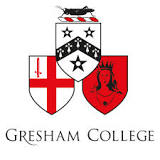Category: 20th century history
EUROPE IN THE AGE OF DICTATORSHIP: Mussolini
The first lecture set the scene by analysing the devastating effects of the First World War on Europe, and goes on to focus on Italy, where a recently introduced democratic political system disintegrated, giving way to the Fascist dictatorship of Mussolini in the 1920's.
Britain in the Twentieth Century: The Economic Crisis and its Consequences
Fears about the fiscal deficit and the possibility of a run on sterling caused MacDonald and Snowdon to take drastic action in the economic crisis of 1931. However, they could not win the support of the trade unions and the cabinet, so headed up a ‘National’ Government of Conservatives and Liberals. Labour was decimated in the elections of 1931 and 1935 – not returning to power until Churchill’s war-time coalition.
The British Prime Ministers from Attlee to Blair
A lecture to mark the publication of Vernon Bogdanor's book based on the series of lectures delivered at Gresham College during 2006 and 2007, Leadership and Change: Prime Ministers in the Post-War World.
THE AMERICAN PRESIDENCY: TRANSFORMATION AND CHANGE DWIGHT EISENHOWER, PRESIDENT 1953-1961
Eisenhower was elected on a programme of repudiating both Franklin Roosevelt's New Deal, which the Republicans saw as socialistic, and Harry Truman's foreign policy which the Republicans saw as one of appeasement. Yet the Eisenhower Presidency was marked by the growth of consensus. He sought to heal the wounds which divided Americans, and to lower the temperature in foreign affairs after the death of Stalin. Critics argue that, in the search for consensus, he allowed deep-seated problems to fester, in particular civil rights. Was the price of consensus too high?
GERMANY AND THE SECOND WORLD WAR: THE FALL OF THE THIRD REICH 1944-45
The final lecture in this series asks why Germans kept on fighting when the war was so clearly lost. The worse the situation became, the more the regime used terror and coercion to impose its will. Some hoped for rescue by 'wonder-weapons'. Many Germans carried on because they thought they were fighting for Germany. Nationalism was what fundamentally motivated the officers who tried to kill Hitler in July 1944. The last semblance of normal life disappeared in the destruction and chaos of the last months of war. The lecture concludes with a discussion of the legacy of Nazism for Europe and the world.
Part of the series Germany and the Second World War, by Professor Richard J. Evans FBA, Visiting Gresham Professor of History.
HARRY TRUMAN, PRESIDENT 1945-1953
The Truman Presidency was marked by the Cold War with Stalin's Soviet Union, and historians continue to debate the relative responsibility of the West and the Soviet Union for its advent. What cannot be denied, however, is that Truman was called upon to make major decisions which still affect our own times - use of the atom bomb against Japan in 1945, the Marshall Plan to aid Europe in the establishment of NATO, and the defence of South Korea against the North in 1950. Some have accused Truman of over-reaction, but, at the time, the Republican opposition accused him of weakness towards the Communist powers. Who was right?
HITLER AND THE ORIGINS OF THE WAR
Nearly half a century ago, the historian A. J. P. Taylor brought about a startling rethinking of our understanding of the origins of World War II.
The first lecture in this series revisits the debate he unleashed, pointing to the evidence that has accumulated in recent years of Hitler's far-reaching plans for the creation of a new Nazi empire in Eastern Europe as a springboard for the rise of Germany as the dominant power in the world. Appeasement may have been the only feasible policy up to early 1939, but it rested all along on a misreading of Hitler's intentions.
HITLER'S VICTORIES 1939-41
The second lecture in this series describes the astonishing and crushing military victories of the first two years of the war that brought Nazi Germany to a position of supreme power in the European continent. Following Italy's failure in North Africa and the Balkans, the German armies occupied these areas too. Yet Britain and the Empire held out, and harsh occupation policies began to damage Germany's interests and arouse resistance in many parts of Europe. Germany's early successes were built on a mixture of good tactics and good fortune, but they could not last.
THE AMERICAN PRESIDENCY: TRANSFORMATION AND CHANGE JOHN F KENNEDY, PRESIDENT 1961-1963
Kennedy's brief Presidency, terminated by assassination, still has glamour attached to it, over 40 years after his death. Yet, his actual performance in office divides the historians. Some claim that he was continually learning from experience. They argue that if he had lived and been returned for a second term, he would have introduced radical reforms in civil rights, and would have withdrawn from the United States' commitment in Vietnam. Others argue that his foreign policy would not have been so very different from that of his successor, and that he would have had less success in persuading Congress to pass civil rights legislation. What should the final verdict be?
STALINGRAD AND BEYOND 1942-43
By December 1941 the Third Reich had reached the apogee of its success.
But Germany's economic and manpower resources proved insufficient to defeat the Soviet Union, and the Battle of Stalingrad marked the turning of the tide. By the middle of 1943, Germans were beginning to realise they would lose the war. The Allied bombing of German towns and cities caused a further drop in morale. The fourth lecture in this series analyses the reasons for the decline in Germany's military position and looks at its impact on the German people.
Part of the series Germany and the Second World War, by Professor Richard J. Evans FBA, Visiting Gresham Professor of History.
